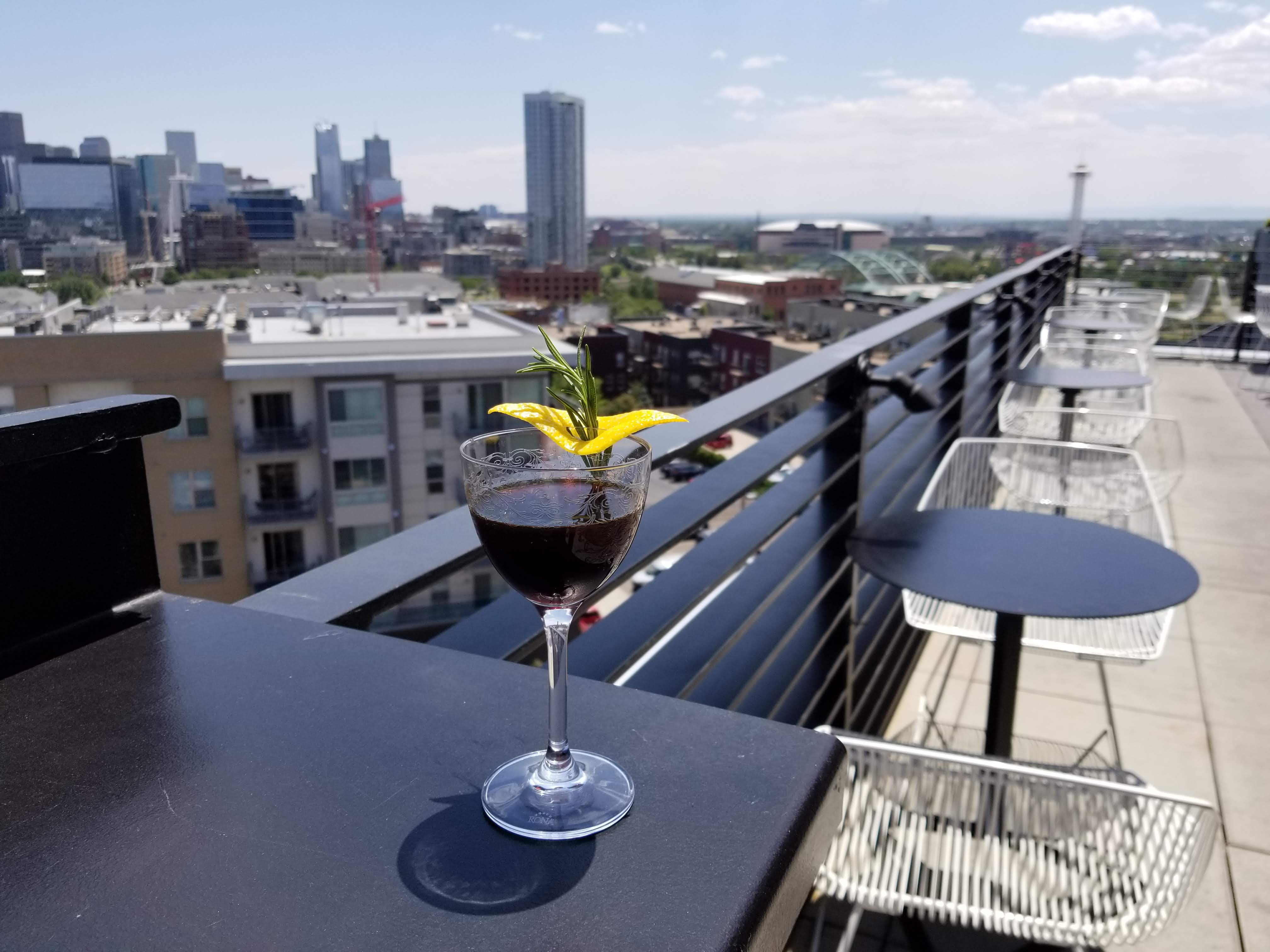The Local newsletter is your free, daily guide to life in Colorado. For locals, by locals.
El Five eschews straws unless one is specifically requested by the customer. The restaurant also repurposes unused cocktail garnishes and uses spent coffee grounds to make house-made infusions and bitters.
But Ky Belk, bar director for the Edible Beats restaurant group (which also owns Linger, Root Down, and others) wanted to do more. He decided to look down the drain—as in, the dump sink drain. The dump sink is where bartenders and servers pour out unconsumed beverages, which mostly consist of melted ice from cocktails and cocktail-making.

“I looked at the month of January at Linger,” says Belk. “It’s not a busy month, and we sell a bunch of old fashioneds because it’s the middle of winter.” Linger’s 5 Spice old fashioned is made in a stirring glass filled with ice, whiskey, sugar, and bitters. Stirring combines and chills the ingredients, and the melted ice dilutes the mixture for a smooth finish. Bartenders then strain the drink into a rocks glass over a large ice cube. The ice from the stirring glass goes into the dump sink and, since the large cube melts slowly, most of that returns, too.
“That month we sold 2,000 [old fashioneds],” Belk says, “and I calculated that the ice left in the stirring glass and the amount of ice that came back unconsumed added up to around six ounces per cocktail. If you extrapolate that out to 2,000 drinks, that’s around 800 bottles of water we threw down the drain.”
So Belk began looking into what he calls “low-ice cocktails.” He found a few bars in London that didn’t use ice. “I thought, Oh, Europeans, they’re not crazy about ice,” he says. “I didn’t realize it was a conservation move.”
He learned that those places batch cocktails in advance and bottle them; when ordered, the bottle gets pulled from the fridge and the drink is poured into a serving glass and garnished. Belk has adopted the practice for El Five’s Old Turk old fashioned and Fez Medina cocktails, keeping pre-batched versions in the fridge that are ready to be poured and garnished.
For guests sitting at the bar, El Five’s bartenders still make cocktails to order for presentation purposes. “Ice is our medium,” Belk says. “It’s like asking cooks to be more conscientious with their natural gas usage.” Seeing and hearing a bartender stirring or shaking ice is part of the experience of sitting at El Five’s bar, so Belk continued his research into other methods of ice usage reduction.
“Other drinks that I thought were ‘wasted ice offenders’ are what I call two-ice drinks, like margaritas,” he says. These kinds of cocktails are shaken in a tin with ice (which gets dumped), and then strained over fresh ice for serving.
Belk’s solution was a skinny spindle blender, the type you might see at old-time soda shops for mixing milk shakes. Slim and sexy, it hardly makes a sound. “When you shake a drink, you’re aerating as well as chilling and diluting,” Belk says. The Spindle does the same, but faster because it’s only used for two seconds (not long enough to completely crush the ice) and uses a few small cubes versus an entire tin worth.
Perhaps Belk’s crowning ice reduction achievement is El Five’s Spanish Scaffa, a cocktail that uses no ice whatsoever. “Scaffa is a term from an old bar manual that referenced a drink served undiluted,” he says. “It’s a blend of Scotch, Spanish brandy, sherry, and bitters. We just bottle-batch that and hold it in the red wine cooler at 55 degrees—on the menu it says ‘cellar temperature.’ ”
Belk says he plans to share these techniques with other the bars at other Edible Beats restaurants. He has already revamped Linger’s old fashioned into a keg cocktail, eliminating the need for stirring ice. “Ophelia’s cocktail program is already 90% on draft, incredibly low ice,” he says.
Living in the drought-prone state of Colorado, we should all be concerned with water consumption, even at the bar. “It’s like leaving a tap open,” Belk says. And we can do better.








